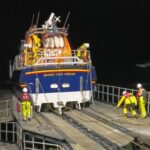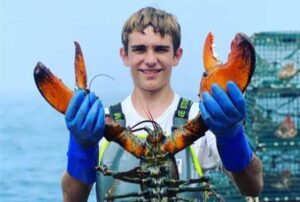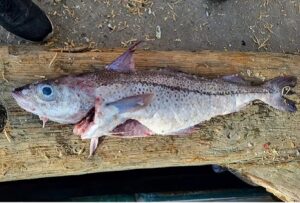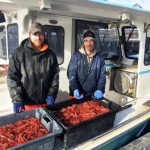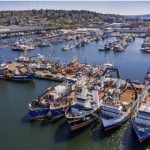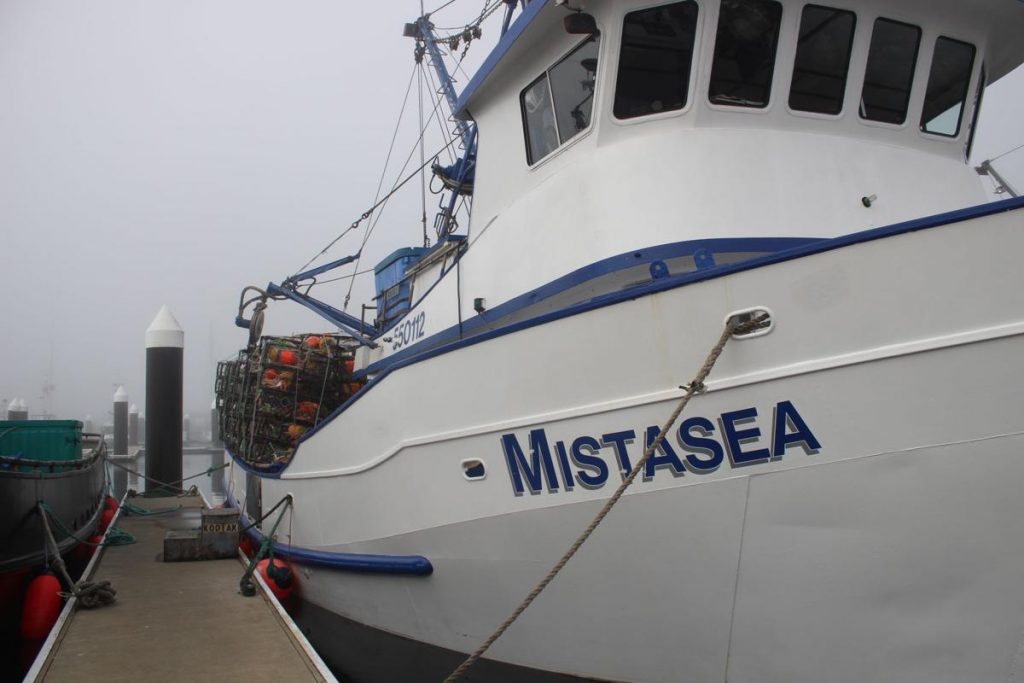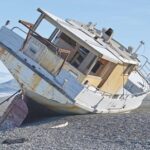Daily Archives: March 18, 2013
Alright. This 2048 crap is out of control! You gotta read this. (shaking head) – Want to Save Starving Sea Lion Pups? Here’s How
![]() Want to Save Starving Sea Lion Pups? Here’s How– Megan Pincus Kajitani. Tears streamed down my 7-year-old daughter’s face this cloudy, March morning, as we watched the plight of a lone female California sea lion pup, clearly exhausted, struggling to keep her head above water and get herself to our local beach’s jetty. blah blah blah, tears running down my face, and then, Many marine scientists believe that, at the rate we’re going, the seas will be barren by 2048. (Did you get that? No sea life in 35 years!) Read this ! See this article – No fish Left in the Ocean by 2048!!! – Media hype gets you more citations? Well, it did for this fisheries paper. By Dr Bik
Want to Save Starving Sea Lion Pups? Here’s How– Megan Pincus Kajitani. Tears streamed down my 7-year-old daughter’s face this cloudy, March morning, as we watched the plight of a lone female California sea lion pup, clearly exhausted, struggling to keep her head above water and get herself to our local beach’s jetty. blah blah blah, tears running down my face, and then, Many marine scientists believe that, at the rate we’re going, the seas will be barren by 2048. (Did you get that? No sea life in 35 years!) Read this ! See this article – No fish Left in the Ocean by 2048!!! – Media hype gets you more citations? Well, it did for this fisheries paper. By Dr Bik
Fraser sockeye watchers see stock rebuilding
 Salmon watchers are hoping this is the year the troubled Fraser River sockeye run turns the corner on its disastrous collapse four years ago. If returns come in as forecast, nearly 4.8 million sockeye will make their way up the Fraser this summer.That’s still well short of the longer term average of 8.6 million for this part of the four-year cycle. continue
Salmon watchers are hoping this is the year the troubled Fraser River sockeye run turns the corner on its disastrous collapse four years ago. If returns come in as forecast, nearly 4.8 million sockeye will make their way up the Fraser this summer.That’s still well short of the longer term average of 8.6 million for this part of the four-year cycle. continue
The Disingeuous Bastards – When will the ENGO’s start addressing the real problems instead of always blaming it on over fishing?
![]() How We Got Into Such A Mess With Storm water SEATTLE — Gliding through the clear, emerald water of Puget Sound, Diver Laura James stopped when something shiny on the bottom caught her eye. She reached down and picked up a tire-flattened beer can. And then she noticed more garbage — stir straws, bubble gum wrappers, coffee lids, a plastic packet of ketchup — littered across the sound’s sandy floor. “I didn’t understand what I was seeing at first,” James says. “We’d swim along and we’d see this decaying swath – black with dead leaves and garbage. And then it would go back to normal.”
How We Got Into Such A Mess With Storm water SEATTLE — Gliding through the clear, emerald water of Puget Sound, Diver Laura James stopped when something shiny on the bottom caught her eye. She reached down and picked up a tire-flattened beer can. And then she noticed more garbage — stir straws, bubble gum wrappers, coffee lids, a plastic packet of ketchup — littered across the sound’s sandy floor. “I didn’t understand what I was seeing at first,” James says. “We’d swim along and we’d see this decaying swath – black with dead leaves and garbage. And then it would go back to normal.”
James, who has been diving in Puget Sound for more than 20 years, recalls the day she discovered the source. The giant submerged column she saw from a distance was in reality a dark plume of runoff flowing out of a pipe. “It was just billowing and billowing,” James says. “It just made me feel almost helpless because it’s unstoppable.” She asked herself, “How do we stop something that’s so much bigger than us?” continue
Pew Environment Group Targets John Bullard in Online Petition Drive Against NEFMC Proposed Changes to Closed Areas
 March 18, 2013 — Calling current efforts being undertaken by the New England Fishery Management Council “a short-sighted plan” that ” threatens New England’s coastal ecosystem,” the Pew Environment Group’s Peter Baker has issued an email call to action asking recipients to “tell NOAA officials that New England’s iconic fish need protection now more than ever.” continue
March 18, 2013 — Calling current efforts being undertaken by the New England Fishery Management Council “a short-sighted plan” that ” threatens New England’s coastal ecosystem,” the Pew Environment Group’s Peter Baker has issued an email call to action asking recipients to “tell NOAA officials that New England’s iconic fish need protection now more than ever.” continue
Ocean plankton’s absorption of CO2 higher than assumed
 In making their findings, the researchers have upended a decades-old core principle of marine science known as the Redfield ratio, named for famed oceanographer Alfred Redfield. He concluded in 1934 that from the top of the world’s oceans to their cool, dark depths, both plankton and the materials they excrete contain the same ratio (106:16:1) of carbon, nitrogen and phosphorous. continue
In making their findings, the researchers have upended a decades-old core principle of marine science known as the Redfield ratio, named for famed oceanographer Alfred Redfield. He concluded in 1934 that from the top of the world’s oceans to their cool, dark depths, both plankton and the materials they excrete contain the same ratio (106:16:1) of carbon, nitrogen and phosphorous. continue
Panel endorses increase in Penobscot elver eel licenses
![]() AUGUSTA, Maine — A legislative committee voted unanimously Monday morning to support a bill that will allow the Penobscot Nation to issue 48 elver fishing licenses to its members. Another bill would allow the Passamaquoddy Tribe to issue 200 elver licenses to its members. Maine state law currently does not limit the number of elver licenses that the Passamaquoddys can issue. continue
AUGUSTA, Maine — A legislative committee voted unanimously Monday morning to support a bill that will allow the Penobscot Nation to issue 48 elver fishing licenses to its members. Another bill would allow the Passamaquoddy Tribe to issue 200 elver licenses to its members. Maine state law currently does not limit the number of elver licenses that the Passamaquoddys can issue. continue
No fish Left in the Ocean by 2048!!! – Media hype gets you more citations? Well, it did for this fisheries paper. By Dr Bik

 Media hype gets you more citations? Well, it did for this fisheries paper. Y’all might remember the slight media coverage (ha!) of a very controversial fisheries paper published in 2006: “Impacts of biodiversity loss on ecosystem services” by Boris Worm and others, Trevor Branch, having long been captivated by fisheries research and having deep knowledge of this Worm et al. controversy, sat back in his chair, pented his fingers, and had an epiphany: “I’ve got it! We should analyze citation patterns for Worm et al. (2006)!” (a written dramatization of possibly real events). So he did. And the results are pretty awesome. continue!
Media hype gets you more citations? Well, it did for this fisheries paper. Y’all might remember the slight media coverage (ha!) of a very controversial fisheries paper published in 2006: “Impacts of biodiversity loss on ecosystem services” by Boris Worm and others, Trevor Branch, having long been captivated by fisheries research and having deep knowledge of this Worm et al. controversy, sat back in his chair, pented his fingers, and had an epiphany: “I’ve got it! We should analyze citation patterns for Worm et al. (2006)!” (a written dramatization of possibly real events). So he did. And the results are pretty awesome. continue!
German supermarkets ban lobster sales – Albert Schweitzer Foundation campaign calls lobster deaths ‘gruesome’

 A German animal rights group says its campaign to ban the sale of lobsters in the country’s supermarkets has been very successful. “As we all know, they are usually boiled alive which seems to us one of the most gruesome deaths you can imagine,” Mahi Klosterhalfen, the executive vice president of the Albert Schweitzer Foundation said. Seafood exports, especially lobster sales, are a big business in New Brunswick. continue
A German animal rights group says its campaign to ban the sale of lobsters in the country’s supermarkets has been very successful. “As we all know, they are usually boiled alive which seems to us one of the most gruesome deaths you can imagine,” Mahi Klosterhalfen, the executive vice president of the Albert Schweitzer Foundation said. Seafood exports, especially lobster sales, are a big business in New Brunswick. continue
Big fish catches mean smaller fish – Bangor scientists
 Scientists have warned that a fishing rethink is needed after finding that catches of big fish trigger a rapid change in the gene pool of fish stocks. Researchers at Bangor University say they found that over-harvesting larger fish leads to a population of smaller fish that are less fertile. continue
Scientists have warned that a fishing rethink is needed after finding that catches of big fish trigger a rapid change in the gene pool of fish stocks. Researchers at Bangor University say they found that over-harvesting larger fish leads to a population of smaller fish that are less fertile. continue
Video: Coast Guard medevacs crewman from F/V Stella near Kodiak, Alaska
A Coast Guard MH-60 Jayhawk helicopter crew from Air Station Kodiak hoists a 35-year-old hypothermic crewman from the deck of the 58-foot Kodiak-based fishing vessel Stella in Shelikof Strait, Alaska, March 15, 2013. There is no au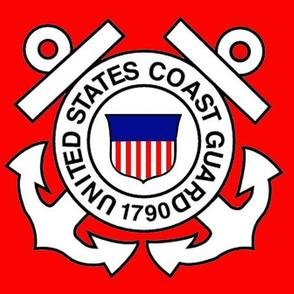 dio for this video. The man fell overboard from the vessel earlier in the day and was recovered from the ocean by the remaining crew after 25 minutes in the 37.6 degree water. U.S. Coast Guard video by Air Station Kodiak. video
dio for this video. The man fell overboard from the vessel earlier in the day and was recovered from the ocean by the remaining crew after 25 minutes in the 37.6 degree water. U.S. Coast Guard video by Air Station Kodiak. video
Green crabs, nitrogen identified as top threats to Maine’s softshell clams
 Where ocean acidification happens as a result of burning fossil fuels, causing carbon dioxide to go into the water, Payne said, coastal acidification happens because of nitrogen runoff from fertilizer, sewage, pesticide and other manmade pollutants. continue
Where ocean acidification happens as a result of burning fossil fuels, causing carbon dioxide to go into the water, Payne said, coastal acidification happens because of nitrogen runoff from fertilizer, sewage, pesticide and other manmade pollutants. continue
Focus on innovation and new markets make New Brunswick top seafood exporter in Canada
![]() FREDERICTON, N.B. – New Brunswick has grown to become Canada’s largest seafood exporter on the strength of its focus on new markets and innovation. continue
FREDERICTON, N.B. – New Brunswick has grown to become Canada’s largest seafood exporter on the strength of its focus on new markets and innovation. continue
Saving Seafood Analysis: Sylvia Earle Alliance Misleads Public on Habitat Closed Area Changes
WASHINGTON (Saving Seafood) March 18, 2013 – After nearly 20 years, there is little evidence that the habitat area closures off the New England coast benefit groundfish stocks. In addition, recent seabed mapping suggests that they are not even in locations best suited for habitat protection. Yet, the Sylvia Earle Alliance’s web-story, “New England Fisheries Face Serious Setbacks (2/27),” misleads readers with the argument that the New England Fishery Management Council’s (NEFMC) proposals to change the closures puts New England’s Georges Bank seabed “at risk of serious ecological setback,” when multiple studies prove otherwise. continue


































